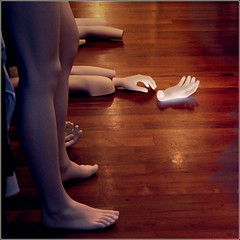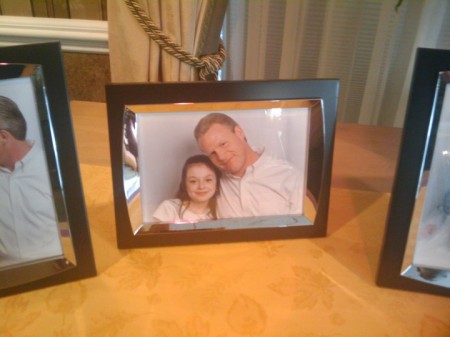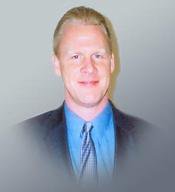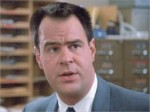I’m not yet ready to write about the loss of my old friend Lee, but I will soon. Learning that he died from complications of a hospital staph infection has brought back thoughts about the congregation of Jehovah’s Witnesses in which we both grew up – or… er… started to grow up. As much as I’ve ranted about the Witnesses on this blog, those experiences have given me so many reference points in my own experience that I can’t bring myself to regret them. Maybe – if the idea of reincarnation has any truth to it – I might even have chosen it, to learn some deep difficult lessons. I’ve been revising this post for four days, and it has turned into one long honker of an essay, but I hope it’s worth the read. It might be easier for you to print it.
The first wash of memory was tied to experiences with specific people. Good, bad, ugly, sweet – they won’t mean anything to a reader unless they were narrated at greater depth than I can do here, or perhaps fictionalized (that’s not out of the question). There were some kind and wonderful people – real people, despite everything. They weren’t always the most obvious candidates. Sometimes it even seemed like there was an inverse relationship between “service” in their sense and the character of the person.
Service never, never means caring for the poor, donating to charity, volunteering, following a calling, or anything that would otherwise be considered an act of service. Service only means “spreading the good news of God’s kingdom,” “placing” magazines and books, turning people into bible or book “studies,” or building a Kingdom Hall (don’t call it a church) for the organization. Sometimes the “friends” will help each other out, sometimes not – but they do not accept any obligation in the public sphere to any human as human.
I remembered the words and music of the “Kingdom Songs.” Oh, don’t call them “hymns”! “Dear Shulamite maiden, so lovely and fair/ your spiritual virtues are many and rare” – and the song we sang at night “we sing this tuneful melody and sing the notes in harmony / for no one else but you could be so worthy of our praise.” “Firm and determined in this time of the end / prepared are God’s servants the good news to defend…” What was it about those songs? Little bits of them still come to me at the oddest times. I’m glad there is a new collection with which I’m unfamiliar.
OH, then the language! The strange contagious weapons of language! Everything “worldly” (non-JW) was of “Satan the devil.” Never just Satan, always “Satan the devil” as though there were a million other satans. All that power discourse of slavery and domination – the district and circuit “overseers.” “Ministerial servants” – literally “serving servants,” used just to avoid words from other communities, like deacon. All the ranks of pioneers and publishers (how odd is that)!
Not “grace” – never, ever “grace” but only “undeserved kindness.” This so diminishes the idea of God, not to mention taking all the meaning from the “good news.” They’ve missed the whole point, I think.
Not “the second coming,” but instead “the presence.” What does that even mean? Is Jesus hovering in the ozone layer?
And here is the “Kingdom,” stripped of any sense that it could be within. What’s left is only a cold “theocratic” rule on earth, God’s “system of things” to be ushered in after the destruction of governments and the wicked (almost everyone, except of course baptised Witnesses in good standing).
By definition, anyone who rejects the JWs rejects God. All other religions are part of “Babylon the Great.” Babylon the Great… the Harlot.. the great evil of world religions, or the U.N., or the Catholic church, or the soon to be here one-world government, or the soon to be here one-world single religion, or… Rome (as many scholars would say).
We were persecuted! Not really, but any criticism was taken as persecution to prove we must be right.
We were special! Kind of special, not as special as the remnant, the 144,000 (who were not of the 12 tribes of Israel, that’s only symbolic), who could “partake” of communion the “emblems” of the Last Supper memorial dinner and rule as kings (that’s literal) with Jesus (in a heavenly democracy? unlikely, maybe a court?) over the “cleansed” earth.
Still, we’re certainly WAY better than those “worldly” people (every insecure group needs a scapegoat, don’t they?).
We’re the Great Crowd! We’re Grrrrreat (cue in Tony the Tiger)! Compared to the world population the “great crowd” is rather small, but there’s a lot more than 144,000! Who wants to be in heaven anyway? We get to live forever on Paradise Earth! Um, well, not counting the still-another final judgment after the thousand-year… reich?
In the “new system of things,” also called “the new world order” (no, not kidding), “things” will be different! After we pick up those pesky bones, we’ll live in an agrarian society full of baskets of fruit, and wild animals walking around harming no-one, and blind ones who can see again, and everyone will have a vapid smile on their face.
There will be no crying, and no sex or children, and no technology – not even the Watchtower and Awake magazines! And by the way, which mansion are you going to pick? I’ve got my eye on that one – truly the worldy people there don’t deserve it.
Watch out for the demonic smurfs! Don’t buy things at yard sales – they could be possessed! Don’t eat Milky Way bars – they have BLOOD in them!
Pray not to need a blood transfusion, unless you want to prove your faithfulness, perhaps unto death. For those about to die, we salute you! But over the years, “new light,” and a little science, and a lot of court cases have revealed some blood “products” might be acceptable now. Which ones? Better not risk it. Just be proud of those brave JWs who resisted the world and its courts in God’s name to ensure lots and lots and lots of death.
 The Watchtower, the Society, the Truth, the Organization, the Governing Body, the “wise and faithful servant” or the “faithful and discreet slave,” Bethel, the publishing house – in other words, the (various) headquarters for the company – was presented as, and believed to be, God’s channel – the only one on the planet. I guess Jesus had an underground station. Best not to investigate since apostates might infect you.
The Watchtower, the Society, the Truth, the Organization, the Governing Body, the “wise and faithful servant” or the “faithful and discreet slave,” Bethel, the publishing house – in other words, the (various) headquarters for the company – was presented as, and believed to be, God’s channel – the only one on the planet. I guess Jesus had an underground station. Best not to investigate since apostates might infect you.
The Society (this was internal shorthand, and I think it’s dated now) was a shadowy group. Questions about its history were discouraged, and most people never questioned it at all. We just accepted that an ever-changing group of men in New York had “new light” (delivered…how? some say by angel!) about the unchanging and eternal Truth. It could really cause a lot of suffering if you happened to believe the “right” thing at the “wrong” time, or the “wrong” thing at the “right” time. Ask them about it in Malawi. Or ask the people that thought the end would come in 1975.
We thought we were following God’s plan, but there was always a tickling cognitive dissonance about being a slave to the organization. Does God really care about service timesheets? Really? Can you “earn” God’s love by spreading the good news? What is the content of this good news, really? Is there anything “good” about it, in their interpretation? Is there any authentic spiritual development or truth involved in the simple obligation to preach to every last person so that they have a last chance to know, and to choose God’s organization, lest they be destroyed and miss out on this Paradise Earth scenario?
A very paradoxical representation of “Jehovah” (YHWH) was really the anchor of the belief system. There is a sense in which it’s correct to call Jehovah’s Witnesses “Jehovists” rather than “Christians.” When they were called “International Bible Students,” the bible might have been fetishized, but at least a mission of learning was inherent.
There is no theology of a trinity. Any JW can give you the entire lecture about how a trinity isn’t scriptural – it’s one of the top ten! Here’s my take on it:
Jesus was only a man, a very special man. Jesus was the ransom sacrifice mysteriously required of the only-begotten son of God. Jesus was the temporary holder of the holy spirit “active force of God’s will.” Jesus was also – and this is fun – Michael the Archangel. Archangel Michael/Jesus became a man, and then stopped being a man and became an angel again, and his “presence” is right back here NOW (since 1914? or has that date changed, too?). Michael is strangely at the same basic level as Lucifer and Gabriel and other archangels, so how is he God’s son? Why aren’t the other archangels considered to be sons? Hey, wait! When did angels get gender? Where then are the female angels?
Don’t think about it. The Society says that God had to be talking to someone at creation when he said “let us.” “Elohim” is only plural in a grammatical, not real, way. Right? How was God’s son Jesus “begotten” if he was already begotten before incarnating being born on earth? Reproducing gods are so pagan, and there is obviously no divine feminine. Right?
In practice, Jesus was just the “mediator” for prayers to get routed to the right God mailbox, a name invoked in a unconsciously-magical chant. I don’t remember anyone ever calling on Jesus, or expressing love for Jesus – only praying “in the name of your son Christ Jesus Amen.”
Jesus was a kind of space alien, the Lord’s overseer for this garden experiment “territory” called the earth. I always wondered about the overseers of other planets. After all, God actually lived in a specific star system, on a giant throne – the Society said so!
How easily we just absorbed the language and the ideas, no matter how strange! The mind-numbing repetition helped a lot – that’s why going to multiple, tediously long and boring weekly meetings was necessary. Not much fellowship there, just rote learning. And of course, everyone talked like that, so you couldn’t help but pick it up, like any other in-group rhetoric, dude. Re-framing the language was not allowed, and deviations from the accepted vocabulary would mark you.
Is it any wonder that I became fascinated with the effects of language?
Speaking of effects, that reminds me that I also remember watching children being dragged outside or into the basement of the Kingdom Hall for discipline. Spare the rod (literal), spoil the child. Without grace, you were always trying to measure up to an impossible standard of perfection, and frustrated adults would often raise the bar (figurative, except for a couple of extreme cases) for children, not understanding much about child development.
My very favorite memory is about how a way opened that allowed me to know who I could trust and respect in my congregation. This was a major event for me – the appearance of spiritual ok-ness that has continued to inform me even now. It was during an ending prayer on a Sunday. We would sometimes go out after the two-hour meeting for lunch; this was a big treat. My baby brother (he *was* just a baby, maybe two or three years old) shouted out “WHEN are we going to get some KUCKY F*CKY CHICKen?!?” Obviously, he was talking about Kentucky Fried Chicken – but the volume, the uncontrollable nature of it, the unintended profanity!
I put my hand up over my mouth and tried so hard not to make a sound. I peeked up and looked around the room – and I suddenly understood that the congregation was divided in kind. Some were furious, frowning, clenching their fists – which is what I expected. Others simply ignored it, which was at least mature. But there was a third group – and I took note and remembered for *ever* the ones who had a hand over their mouth, or who were shaking with repressed laughter or who had heads bowed, but were grinning. Three people were openly looking at my brother with smiles, and one even caught MY eye – during a prayer! – shaking his head and smiling. The scary ones, the ones I knew to be bad people and hypocrites, no matter what anyone said, were all of the first group. Ever since, I have deeply valued a sense of humor, and the perspective of kindness that it sometimes allows, as a touchstone for ethics.
Meanwhile, pedophiles and other abusers were often known, and usually protected. Statistically, there are more abusers and predators among Jehovah’s Witnesses than in any other religion that isn’t generally considered a cult. There are reasons for that. But why would they be protected? “To protect God’s name.” Their reputation as a religious group is more important than the well-being of their members, who are only bits of a largely-disposable free sales force (ask what happens to their workers when they get old).
There were so few responsible men, you see. It was pitifully easy for men to “rise in the organization.” They didn’t receive or need any real theological or pastoral training. The sermons lectures talks were pretty much outlined in communications from HQ. Anyone (male) could do it. Since college was *heavily* discouraged, power positions in the organization also functioned as a compensation for the lack of a meaningful career. It was amazing sometimes how they would get drunk on their “service” and “responsibilities,” especially where it entered into women’s lives. It was a dangerous but required game to “submit yourself” to the elders, just as it was a dangerous but required game for wives to “submit” to their husbands. In theory, a man should love his wife as himself, and an elder love the congregation. But this was a very high standard, especially for such (generally) non-insightful and legalistic men.
Women are not protected as much as male predators and abusers are. The daughters of Eve are of course inherently more inclined to evil, although they outnumber the men in the congregation. This made it even more difficult for women or children to go to the elders to report abuse of any kind. The “two-witness or call it slander” rule meant that going to the elders for help might mean that you would be disfellowshipped yourself for reporting it. Normally, reporting on each other was pretty much a matter of course – a built-in panopticon, the secret police of your friends and family. But “friends” were discouraged from going to any satanic worldly authorities, like therapists or police or women’s shelters. By the time I was raped, I already knew enough not to go to the elders for “guidance.”
The “theocratic strategy” (lying to “worldly” authorities) was and is an active principle – courts take note – and JWs have an impressive team of lawyers, who presumably were allowed to go to college. They will even intervene in divorce cases, especially when child custody is at stake.
That irony always bothered me very much: that every little rule could destroy your world, and yet gigantic issues couldn’t be dealt with or even questioned – especially from a female perspective. Dating was only allowed with an eye to marriage, and you didn’t want to risk being “unevenly yoked” with a worldly person. You’d lose all status in the congregation that way. The “gray areas” or “matters of conscience” were heavily surrounded with “guidance” from the Watchtower Society. I remember a time when they were obsessed with oral sex, and spouses were reporting on each other for “asking”! Homosexuality… well, don’t even go there. But somehow physical spiritual emotional and sexual abuse – even toward children – was treated differently.
My own experiences were minor, really. I was reprimanded for being in a high school play of Fiddler on the Roof because it had a dream sequence with a “depiction of the supernatural,” not to mention the general exhibitionism. This was the same year that JW Michael Jackson released the “Thriller” video. I started asking some questions and instead of answers, I got labelled “rebellious youth.”
Rumors flew – JWS are great gossipers! – and I got hauled up before the elders again. This time I was accused of sexual misconduct. Supposedly I had been all over the state sleeping with “brothers” in every possible congregation (on my bicycle?). The truth was, I was a virgin – but not for nearly long enough after that, since I stopped caring about it after what happened. Looking back, that was the most damaging part, that loss of self-dignity and self-value. I wasn’t allowed to confront my accusers, although I found out later that it relied completely on malicious gossip, with not one confession or witness involved – yet pedophiles and abusers required two witnesses to the act before there would be any investigation, much less any “disciplinary action.”
I asked myself why they thought it was acceptable and right for grown men to surround a young girl, intimidating her and accusing her of lies. I didn’t think their actions were even in alignment with their own rules. It felt – and I think it was somehow – personal. Events after that, mostly concerning how other people were treated, finally convinced me that the fruits of the spirit were only to be found as exceptions to the rule among Jehovah’s Witnesses. It’s not completely their fault. Their priorities are seriously disordered, and intentionally so. It gives special meaning to Leonard Cohen’s song “The Future“: When the prophets said “repent,” I too wonder what they really, truly meant. Surely not this.
The self-righteousness training backfired on them in my case. I could not in good conscience commit to being baptised (the symbol of my dedicated vow to serve Jehovah and his organization). Sure, I enjoyed explaining exactly why I didn’t salute the flag. I loved feeling that God was on my side. I loved being a possessor of “the Truth” and being “in the Truth.” I even believed that this evil satanic system of things could end at any moment. But…
I was also a bookworm, and I loved to dance and to sing. And – I so valued kindness. I so valued caring and love and understanding. Eventually, the very training that they gave me in having the courage and integrity to stand up for what I truly believe made it possible (with curiosity, knowledge, imagination, creativity and humor) for me to leave. I took the easy road, and left town to go to college on scholarship.
What a flashback it was in graduate school to face a faculty that had already decided to dismantle the program of Literature and Religion when my advisor had a stroke. They called a meeting to “get feedback” from the students. It was amazing how fast colleagues had abandoned ship. When I tried to argue for the merits of the program, the faces of the faculty members held the same expressions as those elders so long ago. For a while, it seemed like I was back in that same helpless, unfairly-judged space again. I thought I was getting “the intellectual life,” but these dynamics can appear anywhere, anywhere at all – even in my adopted community of academe, toward which I was so idealistic.
You have to deal with ignorance and injustice and resentment and hate and insecurity and all of the rest directly and at the time. That’s the way in which teaching and ethics and politics are all local. I would have handled things differently knowing what I know now. I understand their perspectives (in both cases) better now, and wouldn’t have set myself up by being defensive and letting my fears be so visible and easily-read.
It’s not always wise to stand up to a bully, but smarts often beats thugness. Among people who seem to lack empathy, stories and humor are the only methods that have any chance of getting through. Sometimes it’s not really worth the effort – or the effects – even to try, but one thing is certain: the argument “but it’s not fair” is not one that ever works. You can’t assume – ever – that anyone will understand why it’s not fair. Just skip that part. Try logic if you like, but logic does not engender empathy. Let logic be implicit.
Obvious sectors of the American political landscape remind me so much of what was so unkind (and so self-righteous, misinformed and manipulated) about the (enforced/reinforced) mentality that so affected my life and those of others. I am heartened when I see healers and thinkers and storytellers, but there are not nearly enough of them, not nearly. Their voices are shut down whenever possible. Sometimes our future looks very dark. I cannot read The Handmaid’s Tale again in this atmosphere; just remembering it makes me cry.
again in this atmosphere; just remembering it makes me cry.
How could I ever have thought that “theocracy” was a good thing? The mentality is global now – almost every religion has an active fanatical wing. Christians, Muslims, Jews, even Buddhists? Say it isn’t so. What happened to the virtue of humility? What happened – in America the Beautiful – to the wise separation of church and state that has been one of the foundations for both to thrive? Power-mongers, corruption, mass manipulation. It’s sad… and shameful.
Lingering effects… I still don’t salute the flag. I know the history, and I just feel that it’s a creepy way to show love for your country. I do vote now, though, and I’m kind of relieved that Jehovah’s Witnesses don’t.
I still have a kind of hyper-conscience about community memberships. I don’t feel comfortable participating in communities if I’m not in agreement with every little thing that a particular group believes. I’ve become aware that this is actually a holdover effect, but this has meant that I’m basically a non-joiner (my natural mode is critical). I’m getting better about allowing myself some leeway that since I’ve seen – and experienced – the value of accepting people and situations as they are, unless they are destructive. I am not so distrustful as I used to be, nor as insecure or defensive, and that helps enormously.
I’ve made peace with that me-girl who so desperately needed someone to tell her that it was going to be ok and that she was loved and that the cosmos only asked for her authenticity and her ethic of caring. Her God was a such a cruel, heartless God.
“Independent thinking” was against her religion, but everything inside told her that it would be wrong not to think and ask questions. She didn’t run toward, but away, from the Kingdom Hall to find spiritual dwelling places. Being a JW kept her – for a while – from heading toward the path that was always at the core of her being. Isolation, paranoia, the insecurity/superiority flip – all of these were stumbling blocks. And friends? Sisters and brothers? There *were* friends and sisters and brothers among the members of the Watchtower Society, but many more false friends and Pharisees. Not trying to sound like Job or anything – just sayin’.
That girl found somewhere to be, somewhere to find connection, always – in the woods, the song, the dance, the book. She was always going to be nurtured somehow; it was intuitive, and for that gift I am ever-more grateful. Because of that private set of communion-paths, I wasn’t damaged in some of the ways that I’ve seen among some of the other ex-JWs I’ve known. It took many more years to find authentic connection in relationship, but the starting place was observation, watching people as characters instead of threats, listening to a range of perspectives and voices – especially to the ones that weren’t just nightmarish variations on familiar themes.
Because of the new communication and information resources of the internet, I’ve also discovered that I was never alone in this. There were, and are, others. Some of these went on to higher education, some became singers or musicians or artists or writers or comedians (yes!), some became caregivers in real service to all kinds of people, some started a business or found a soul-mate or travelled the world. Some developed compassion and their own ethical sense (often a much better one). Some kept the evangelism, or even the fundamentalism, but became involved with another religious community that was more rewarding to them. Others became freethinkers and atheists, or goddess-women, pagans, wiccans. Some – sadly – have not yet found another way to be, or are so hurt and isolated and scapegoated and abandoned that their road will be a very difficult one. Some – realistically – never were very interesting people, and still aren’t. There is no one thing that describes former JWs, certainly not the attribute of being “demonic.” Sigh.
The path that brought me to value openness and attunement has been admittedly eclectic (even mystical), but it is imbued with a sensitivity to kindness and justice that I feel all the prophets tried to convey. I lean towards more compassion than I naturally possess – as though it were the sun. I dream with more freedom than I’ll ever have – just like the moon.
There are wisps of fondness for some members of that community still. There are people that I could love better now than I did then, and I am so sad about the loss of the people they might have become were it not for the stranglehold of the JWs. I will always cherish each one’s essential person in my heart, their ‘ness. Sometimes, I pray for them. Still I wonder (yes I wonder) if anyone is listening.
I’ve seen the nations rise and fall
I’ve heard their stories, heard them all
but love’s the only engine of survival. ~ Leonard Cohen, “The Future”





 The Watchtower, the Society, the Truth, the Organization, the Governing Body, the “wise and faithful servant” or the “faithful and discreet slave,” Bethel, the publishing house – in other words, the (various) headquarters for the company – was presented as, and believed to be, God’s channel – the only one on the planet. I guess Jesus had an underground station. Best not to investigate since apostates might infect you.
The Watchtower, the Society, the Truth, the Organization, the Governing Body, the “wise and faithful servant” or the “faithful and discreet slave,” Bethel, the publishing house – in other words, the (various) headquarters for the company – was presented as, and believed to be, God’s channel – the only one on the planet. I guess Jesus had an underground station. Best not to investigate since apostates might infect you. 
